Restoration of Hawaiian Place Names Rejected
For the second year in a row, the Hawaii legislature was faced with a resolution to rename McKinley High School and remove the statue of President McKinley on the oval.
May 13, 2022
*This article placed 4th in Investigative Reporting in the 2023 Hawaii High School Journalism Awards.
For the second year in a row, the Hawaii legislature rejected a resolution to rename McKinley High School and remove the statue of President McKinley on the oval.
What was different this year was members of the House Education Committee provided public reasons for their vote against the resolution and Committee Vice Chair Jeanne Kapela proposed an amendment, which was also rejected at the March 24 hearing.
Kapela’s amendment would broaden the conversation beyond McKinley. She proposed to create a working group to make recommendations regarding the restoration of Hawaiian place names throughout Hawaii’s public school system in reference to the injustice to Native Hawaiians.
In his opposition, Representative Sean Quinlan of House District 47 talked about Kahuku High and Intermediate School.
Similar to McKinley’s situation, the school was targeted for its nickname of “Red Raiders” and its traditions. Following recommendations from the Department of Education’s Civil Rights Compliance Branch, the school removed the mascot and the controversial tomahawk chop chant. The nickname “Red Raiders” remains with a new logo.
“I have a fear from my own community,” Quinlan said. “A couple of years ago some folks tried to rename our state championship Red Raiders football team.”
In his opposition statement, Representative Gregg Takayama explained he attended Farrington High School and Dole Intermediate School and referenced the roles of Sanford Ballard Dole and Wallace Rider Farrington in Hawaiian history as possible future name controversies. In addition, he mentioned Washington Intermediate and Jefferson Elementary, which are named after major slaveholders in colonial days.
“My concern is that setting this working group sets a path to which I don’t know the end,” Takayama said.
Takayama also said that policies regarding names are already in place, citing the Board of Regents for the University of Hawaii system
Takayama said he sees an alternative: create a curriculum that encourages students to engage in critical discussions of their school namesakes, positive and negative, and let that be a part of their education.
Representative Luella Costales applauded Resolution HCR 56 HD1 and HR 50 HD1, a student-initiated force to implement Filipino history, culture, and identity curriculum in high schools for empowerment.
“We saw from this the students who were involved in the Filipino culture and history that they took the matter into their own hands and moved it forward and are really making a lot of accomplishments,” Costales said. “I don’t see this as a stopping place for this discussion.”
Representative Troy Hashimoto was a former student member on the Board of Education. He brought up the original intent of Act 51, created in 2004 to reinvent the way that schools are governed, with the establishment of a school community council. Board of Education’s Policy 301-8 asks each of the school community councils to have the responsibility for naming those facilities.
“I don’t think it’s us, the legislature, that should be leading the conversation about name change,” Hashimoto said. “It should be each school having that critical conversation and that was the role and the purpose of Act 51. It allows each school’s governance board to kind of have that conversation.”
In response to Chair Justin Woodson’s request for more information about the policy and its process, Ken Kakesako, acting director for the Policy, Innovation Planning and Evaluation Branch, elaborated on Policy 301-8.
“We (DOE) like to leave the decision to the School Community Council and the school itself to make the judgment call,” Kakesako said.
In a Zoom interview with The Pinion, Kakesako explained that Act 51 was implemented for the SCC to advise the principal on matters that affect student achievement and school improvement.
“The leadership structure enables shared decision-making among principals, teachers, school staff, parents, students, and community members. The SCC strengthens the ties between school and community that provides a voice for all major stakeholder groups,” Kakesako said. “It creates opportunities for collaboration and partnership in the educational system and focuses on a shared goal of improving student achievement and system accountability.”
On Nov. 18, 2021, McKinley’s SCC submitted a formal letter to the Board of Education to confirm their vote at a Sept. 29 meeting. The SCC voted nine out of nine against the name change.
McKinley’s principal, Ron Okamura, elaborated on this decision during an interview with Hawaii Public Radio.
“The school community council should be the one that determines the name change. That is what the law is saying. That’s what our policy dictates and procedures dictate,” Okamura said. “And to me, that’s the ultimate decision.”
Okamura emphasized local people were born and raised to have a sense of belonging to a place. McKinley has always been that place and is held in high honor, Okamura told HPR.
“It is truly about looking at education. You don’t censor history. You don’t change it. That’s always been my stance on what’s going on here and the continuation of this movement,”
Okamura said. “We teach all sides. The good, bad, the ugly, and we let our kids make the decisions after that, but you have to give them that perspective of every single side. That was the reason why we exist today. And that’s what history teaches us. You don’t make the same mistakes again.”
A student member of McKinley’s SCC, Junior Cayenne-Ayana Dabalos, said, despite her vote, more could be done and this conversation should continue.
“I feel as though it (this decision) should be opened up to more staff and students of McKinley High School,” Dabalos said.
Another student member of the SCC, Erwin Laroco, agrees with Dabalos. He said he wants to hear more from the students. He also wants the students to have an opportunity to speak up, give their opinion, and vote about this controversial topic.




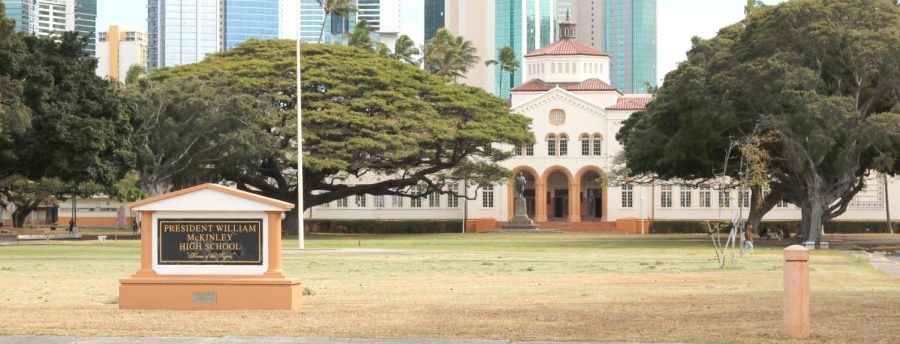
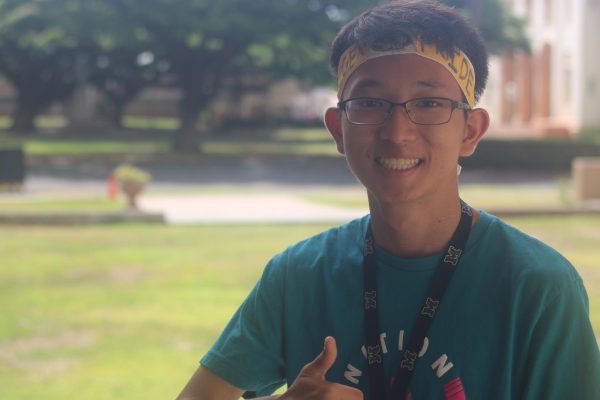

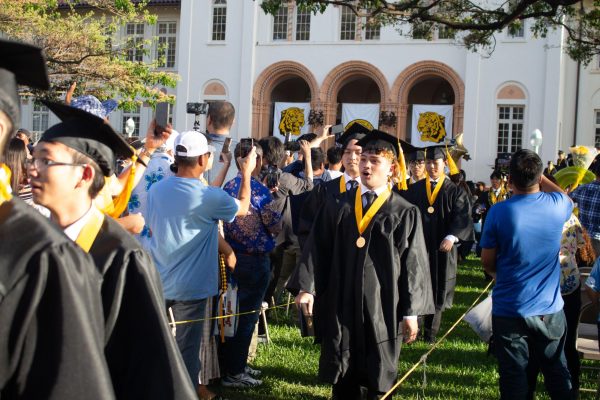
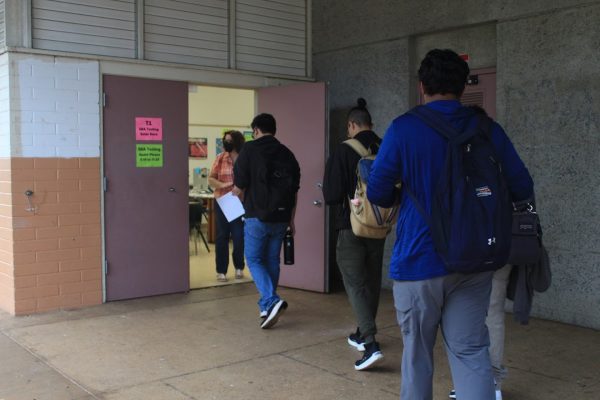
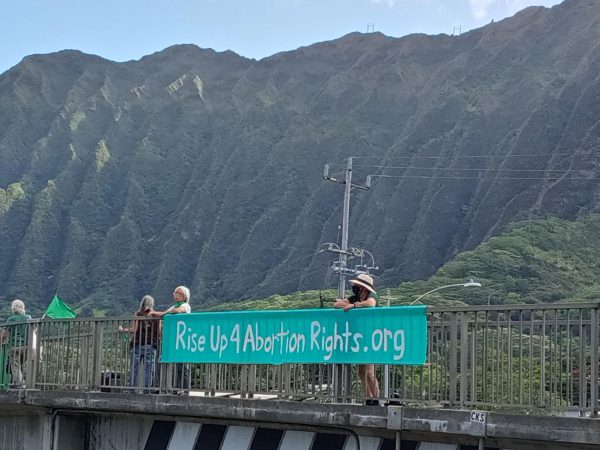


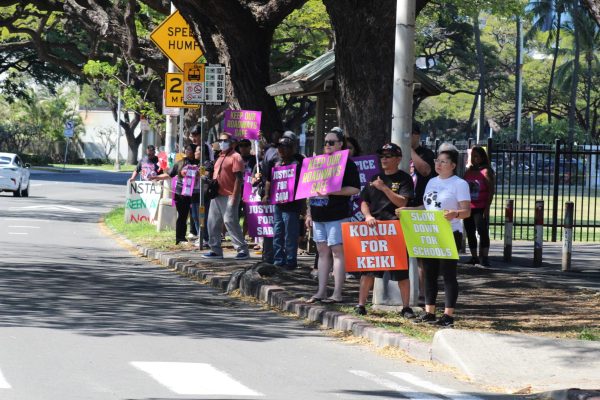
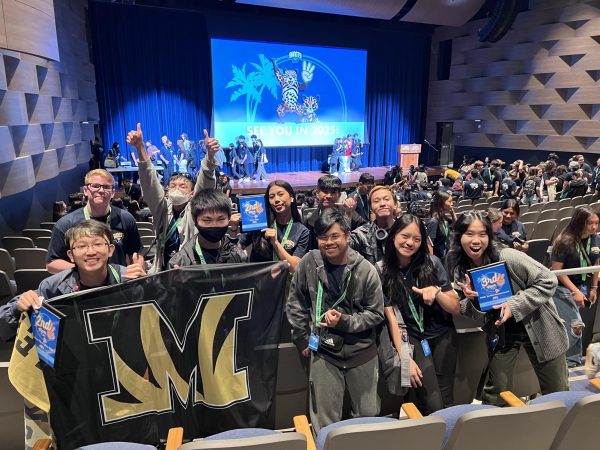
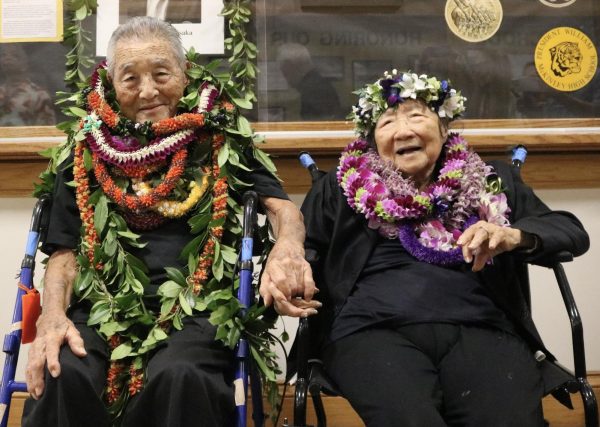
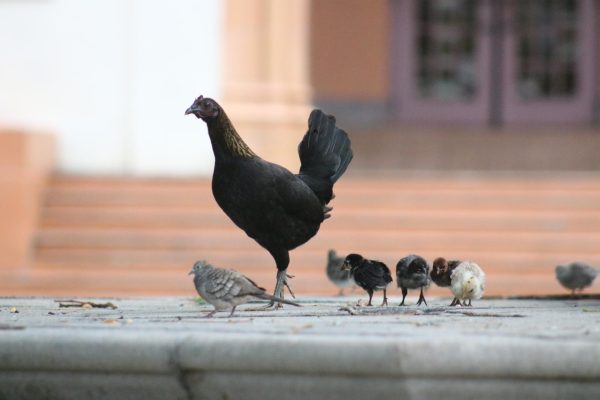

Lexi Lum • May 22, 2022 at 3:53 PM
I wholeheartedly side with Principle Okamura! I’m a McKinley Alumni, Pinion editor in chief c/o ‘99. This discussion should not “ONLY” involve current students and faculty but alumni and notable past faculty as well! This decision to “rename” our school due to past historical “offenses” and differing opinions is a decision that affects not only “current” students but past ones too! Big things like name changes will also affect future tigers.
Being native Hawaiian, this resolution does not speak for all Hawaiians for sure. I’m not in favor of changing the school name – it’s an important part of history, my history and the history of many former students and teachers. I love Mr. Okamura’s stance on history – it should not be erased because it offends a select few. To change the name of school would offend many for sure – so if the reason why we would want to change something because it “offends” a group of people, then you equally have reason to not change it. But the reasons to honor this tradition are simple and I think Mr. Okamura explained it well.